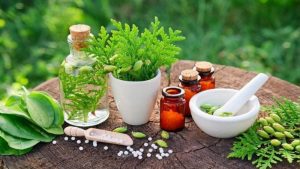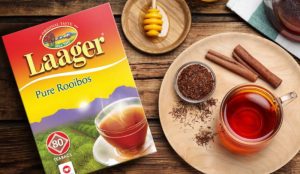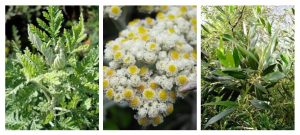In recent years, there has been a resurgence in traditionally used medicinal plants to improve health – either alone or in combination with conventional medicine. Herbal medicines are viewed by many as a balanced and moderate approach to healing. With the many side effects of modern medicines and growing antibiotic resistance, people the world over are beginning to see natural health aids as a safe way to stay healthy and to treat and prevent illness.
Dr Caren Hauptfleisch, Chairperson of the SA Association of Registered Phytotherapists (SAARP), who has more than 30 years of herbal medicine experience, says the steady increase in the use of herbs can be seen throughout the world.
“The introduction of modern healthcare as we know it has led to the disappearance and displacement of many indigenous health practices, however, scientists worldwide are now looking to plants and herbs to formulate new plant-based treatments to prevent and treat disease,” explains Hauptfleisch.
PriceCheck tip: Find the best deals on CBD oils and other products on PriceCheck.

Local herbs with the power to heal
“South Africa, and in particular the Western Cape’s floristic region, is home to a wide variety of indigenous medicinal plants that have been used safely and effectively since time immemorial. Science and clinical use are confirming their medicinal value,” says Hauptfleisch.
These herbs include Rooibos, Honeybush, Buchu, Aloe ferox and Devil’s claw, among others. Marketers all over the globe are clamouring to include them in their products as the demand for herbal medicine and natural health products grow.
PriceCheck tip: From rooibos to chamomile, find the best prices on tea on PriceCheck.

Rooibos is a herb of great significance. It is rich in antioxidants, also referred to as polyphenols, which are compounds that allow plants to resist infections and insect infestations. Drinking it regularly may help to regulate blood glucose, protect the heart from degenerative damage, and when used topically, its anti-inflammatory properties can soothe skin irritations, such as eczema and dermatitis.
Devil’s Claw has been used in the treatment of pain associated with arthritic diseases, liver and kidney problems, fever and malaria and is also used in an ointment to treat various skin problems such as sores and boils.
PriceCheck tip: Creating your own herb garden is a great way to have immediate access to your own herbs and spices. Find the best deals on on home herb garden products and accessories on PriceCheck.
There are a number of local herbs that can also be used to treat and prevent common winter ailments. So, if you’re concerned about warding off the common cold and flu this winter, perhaps now is the time to include these wonderful local herbs into your daily life.

Herbs used in the prevention and/or treatment of common winter ailments:
Indigenous herbs that are commonly used for the prevention and/or treatment of common winter ailments found in the Cape and various parts of Africa, include:
– Wilde als/Umthlonyane (Artemisia afra) prevents and treats various respiratory infections.
– Kankerbossie/Cancer bush (Lessertia frutescens) helps the body to ward off infections and ill health, when used regularly. It also eases symptoms related to colds and flu.
– Wild Olive (Olea europaea subs Africana) prevents infections, including viral infections of the respiratory system.
– Pelargonium sidoides and other pelargoniums, Tulbaghia violacea (wildeknoffel) treats the common cold and associated symptoms of wet cough and soothes inflamed respiratory tissues, including a sore throat.
– Sage (Salvia species) targets viral respiratory infections and eases a sore throat.
– Helichrysum species helps treat coughs.
– Mint (Mentha longifolia) eases pulmonary infections, headaches, fever and colds, when used in combination with other herbs like Artemisia afra, Saliva species and Olea europeaea.
– Sand Olive (Dodonaea viscosa var. angustifolia) traditionally used for treatment of colds and associated sore throat, influenza and measles.
The above herbs are generally used as herbal infusions or can be steamed. Some of them can also be purchased as herbal pills or tinctures.

Dr Hauptfleisch says when using herbal medicine, it’s important to use the right plant for the associated ailment and in the correct dosage. If in doubt, it’s best to ask a professional before trying it at home.
“When herbal medicine is used correctly and in conjunction with a healthy lifestyle, it is an effective and safe approach to healthcare. People and animals have relied on herbal medicine for centuries. Like our food, our bodies are designed to respond to herbal medicines. Many of our modern medicines were first isolated from plants. e.g. Aspirin from Salix alba (White willow bark); antimitotic chemotherapy drugs from the alkaloids of Catharanthus roseus; Quinine from the Cinchona officinalis tree and many others.”
To get the best results from using herbs for your health treatment should be started at the first sign of disease to achieve the best results or preventatively as part of your daily health regimen.




